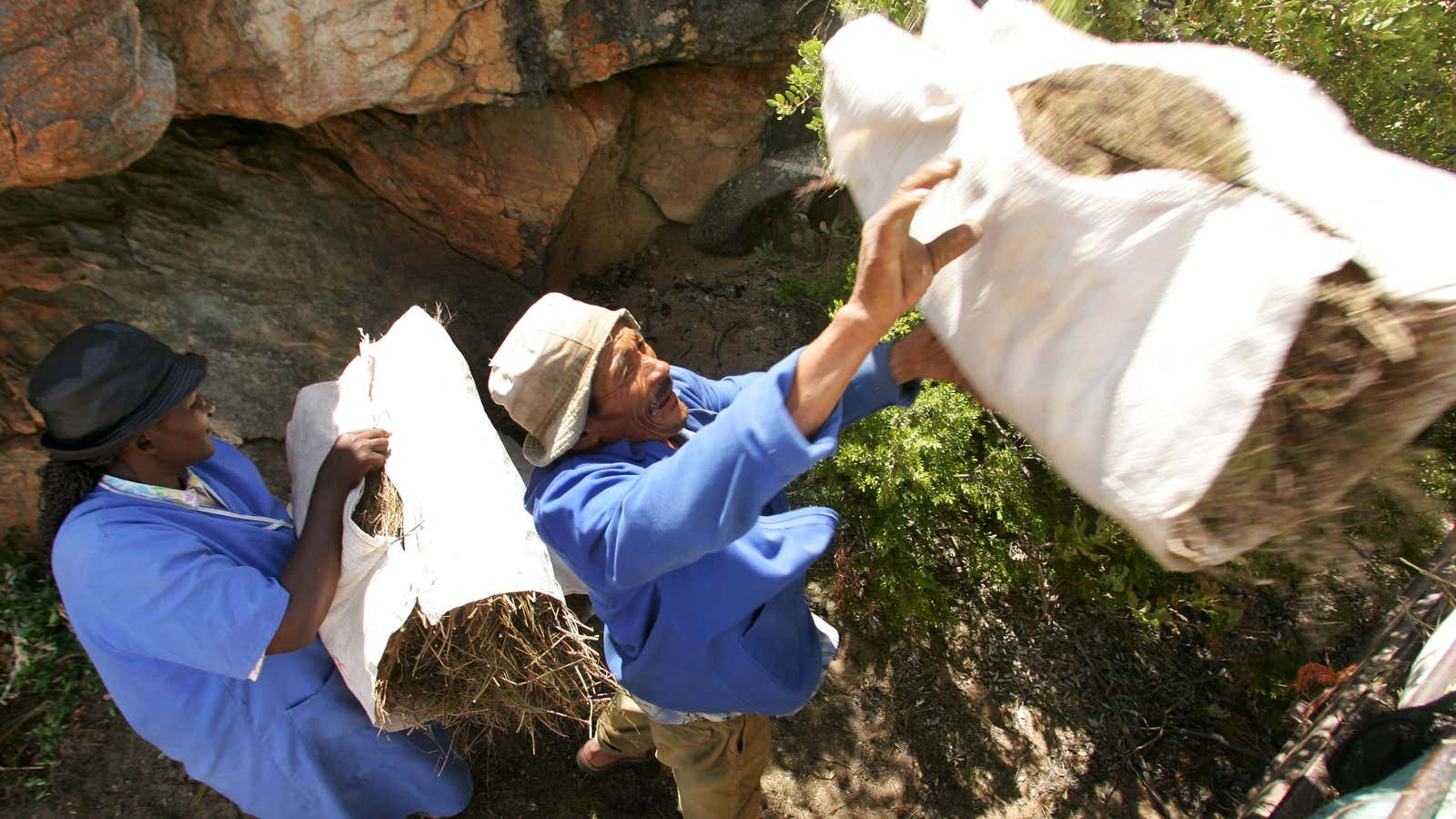Tea from South Africa’s rooibos bush will soon be infused with a measure of restorative justice.
Members of the indigenous Khoisan community will receive 1.5% of the value that people who grow, harvest, ferment or dry rooibos receive from processors annually as part of a benefit-sharing agreement among the government and representatives of indigenous people and farming groups signed last Friday.
The landmark agreement could translate to $813,000 paid each year into trust accounts to benefit descendants of the people who originally inhabited South Africa’s Cape region.
The area, which has been home to Khoisan people for millennia, is the only place in the world where rooibos grows naturally. The region also is the first stop in a global value chain. Demand for rooibos around the world fuels a $21 million local industry that remains predominantly in the hands of South Africa’s commercial farmers.
“This is the first time since knowledge was misappropriated over 150 and 200 years ago that the communities are firstly recognized as traditional knowledge holders and, as a result of that, qualify for benefit sharing,” says Lesle Jansen, an attorney with the environmental and human rights law firm Natural Justice, who represented the National Khoisan Council in the negotiations.
South Africa exports nearly half of the 16,000 tons of rooibos harvested annually to more than 30 countries, where in addition to tea the reddish-brown herb appears in cocktails, soap and a variety of other products.
The agreement culminates nearly a decade of negotiations that followed the demand of Khoisan communities that the industry take note of their contribution to the commercialization of rooibos. In addition to payments, the agreement provides financial support for small-scale rooibos farmers in the country’s Western and Northern Cape provinces.
South Africa’s Biodiversity Act, the United Nations Convention on Biodiversity, and the Nagoya Protocol on Access and Benefit-Sharing, a supplement to the convention that aims at sharing benefits arising from the use of genetic resources in a fair and equitable way, all underpin the accord.
In addition to compensating the Khoisan communities, the agreement will provide a framework for compliance with the protocol in future cases in which established industries derive from “knowledge shared hundreds of years ago,” Jansen says.
The pact comes amid a series of efforts by African communities to reclaim their cultural and artifacts and scientific knowledge. Last November, a Dutch court invalidated a European patent for teff flour, a staple grain that’s used in Ethiopia’s injera bread. In 2014, South Africa won geographic indicator protection for rooibos after companies in the U.S. and France moved to trademark the name.
Negotiations over the Khoisan claims were informed by a 2014 scientific study that revealed the group to be the rightful owners of the knowledge that has informed the use of rooibos, noted Barbara Creecy, South Africa’s environment minister, in a speech that marked the pact’s signing.
“Today’s celebration is also an observance of the correction of a past injustice—a wrong that is being righted,” she said.
Sign up to the Quartz Africa Weekly Brief here for news and analysis on African business, tech and innovation in your inbox
